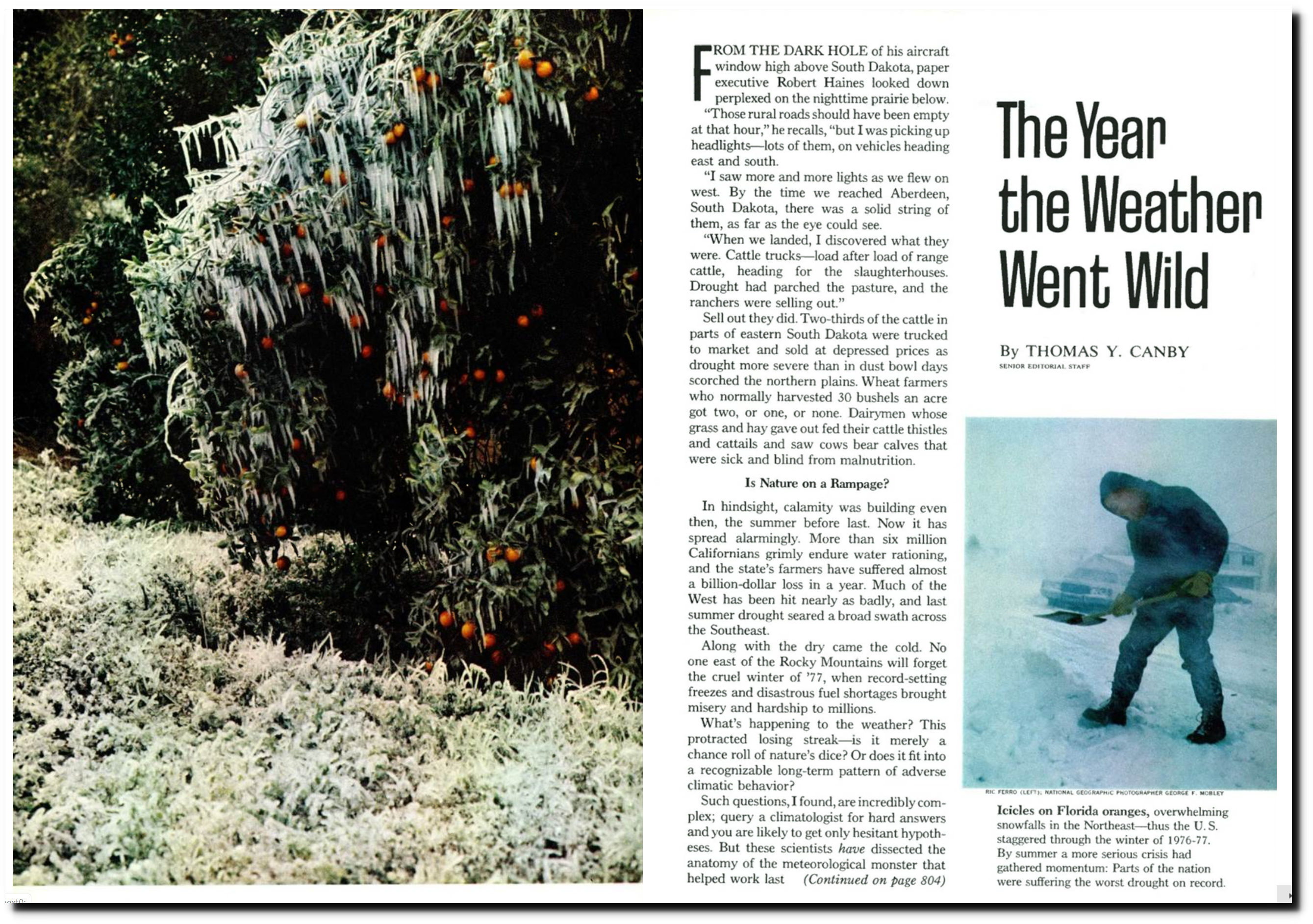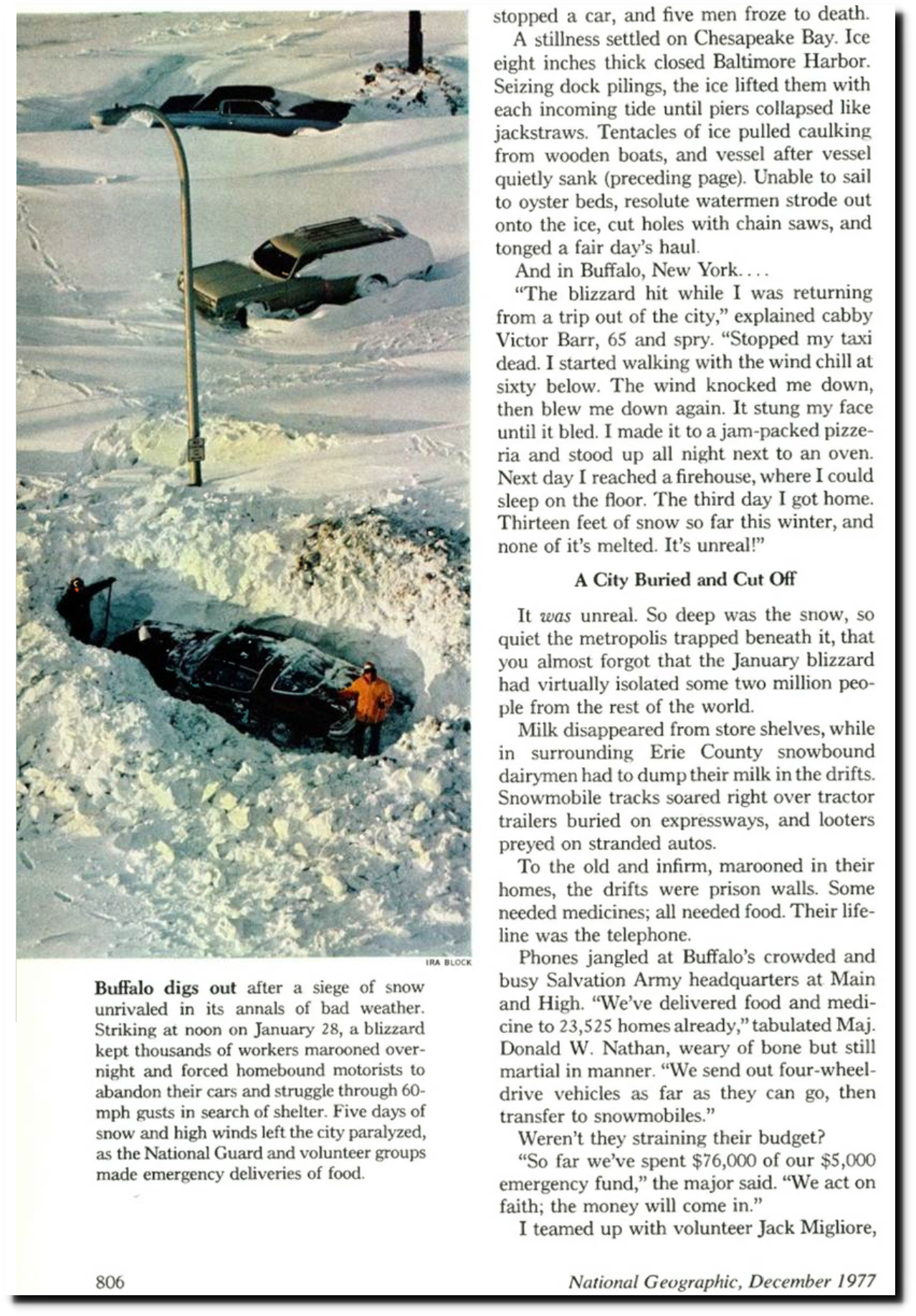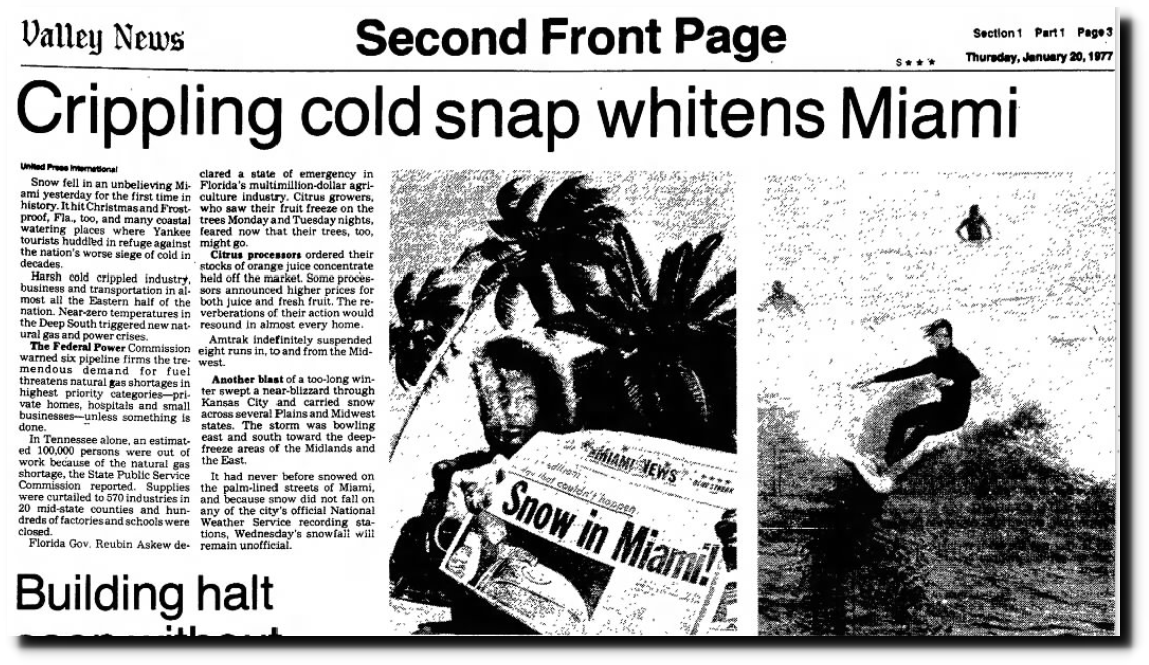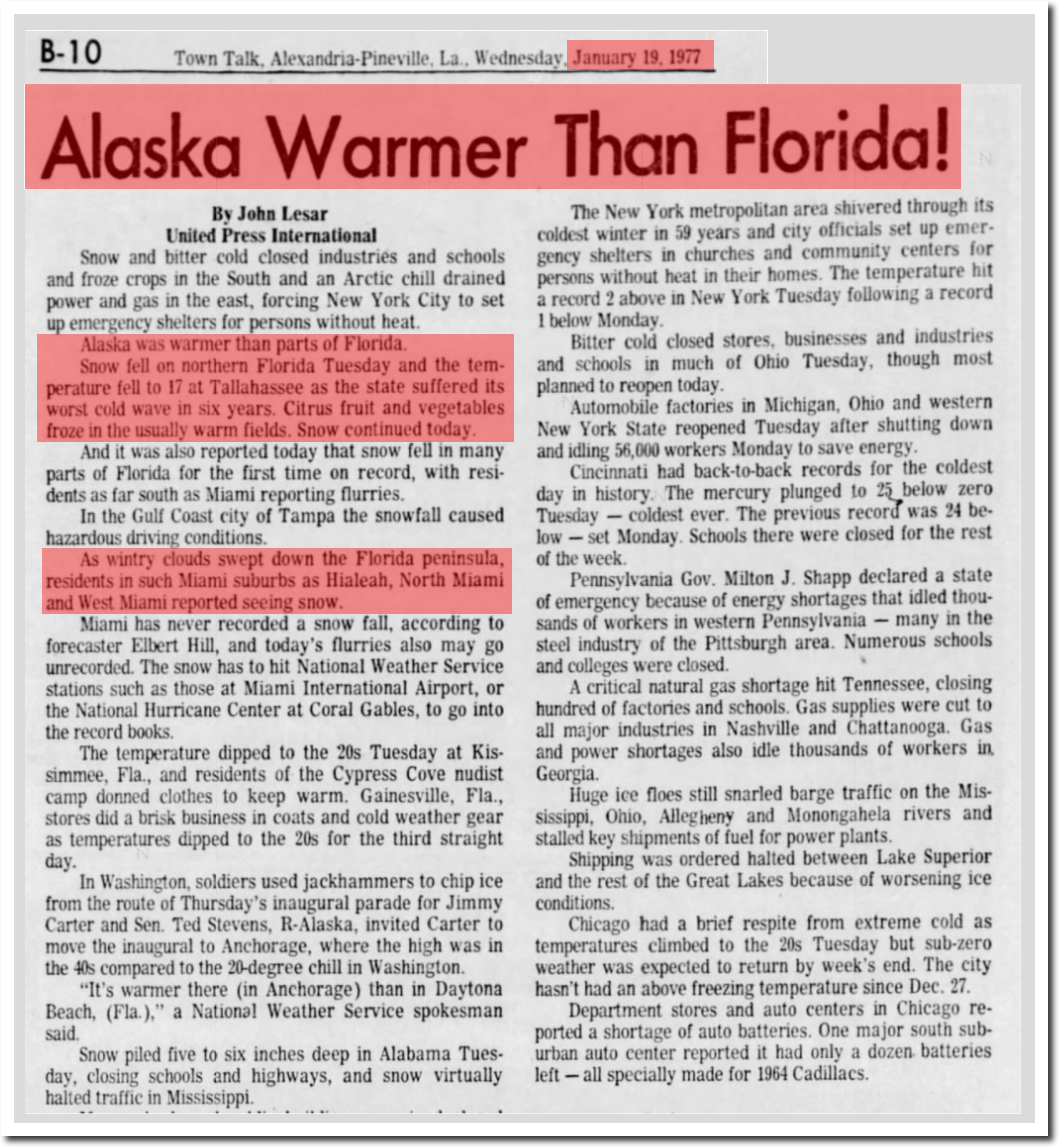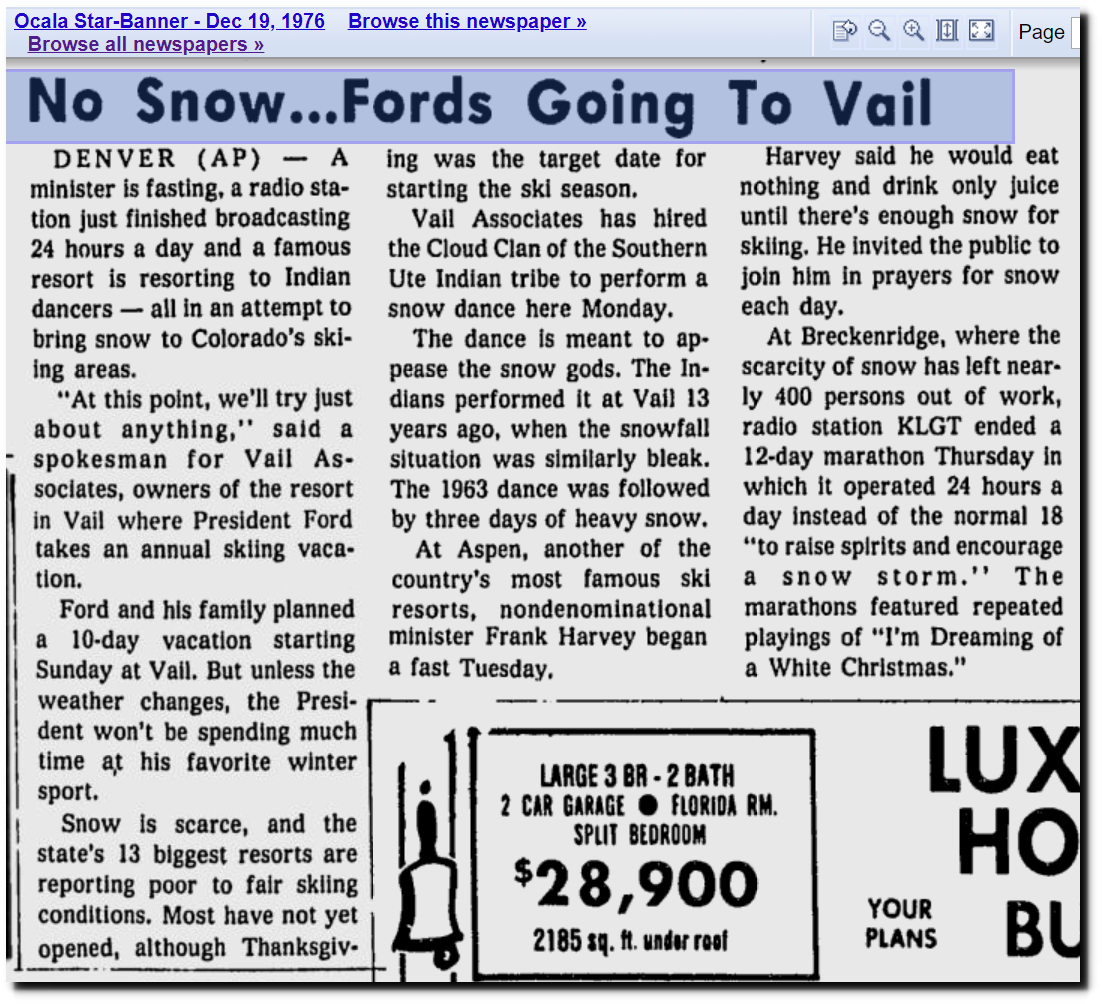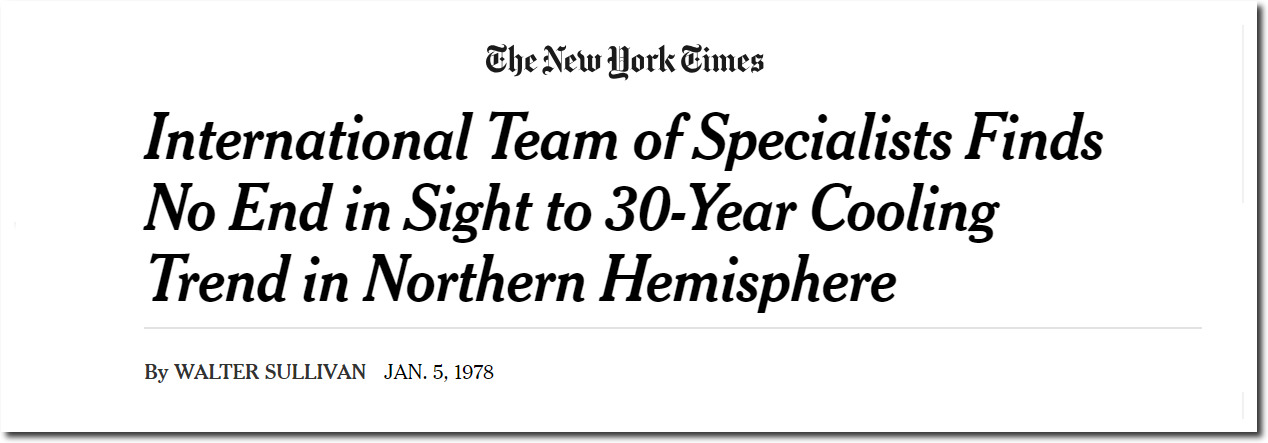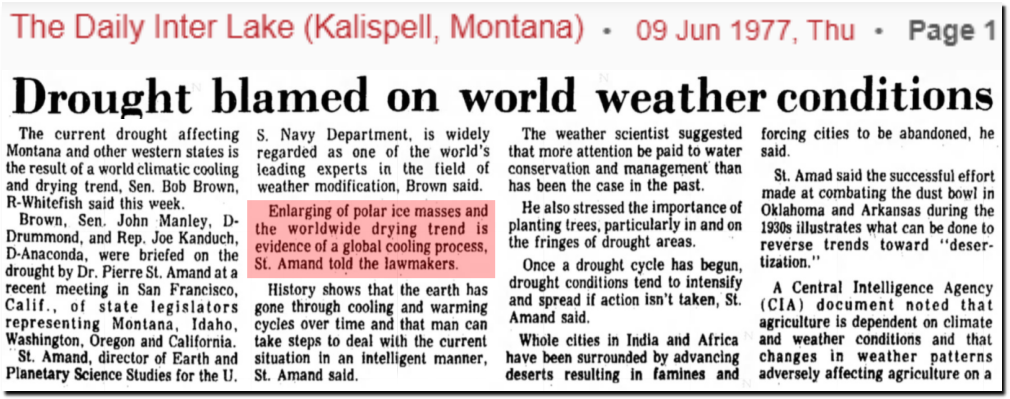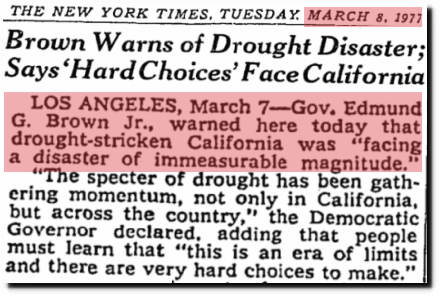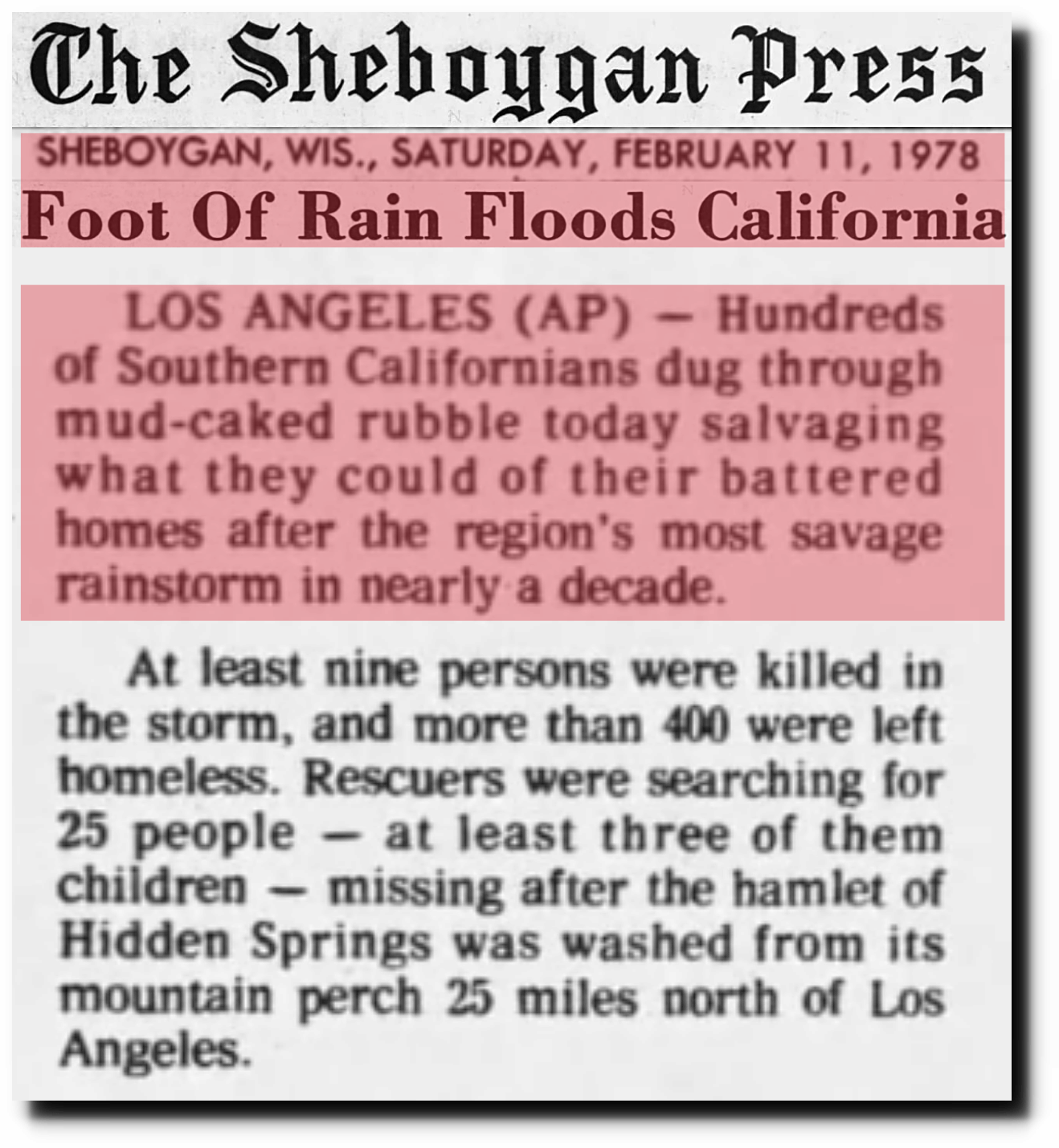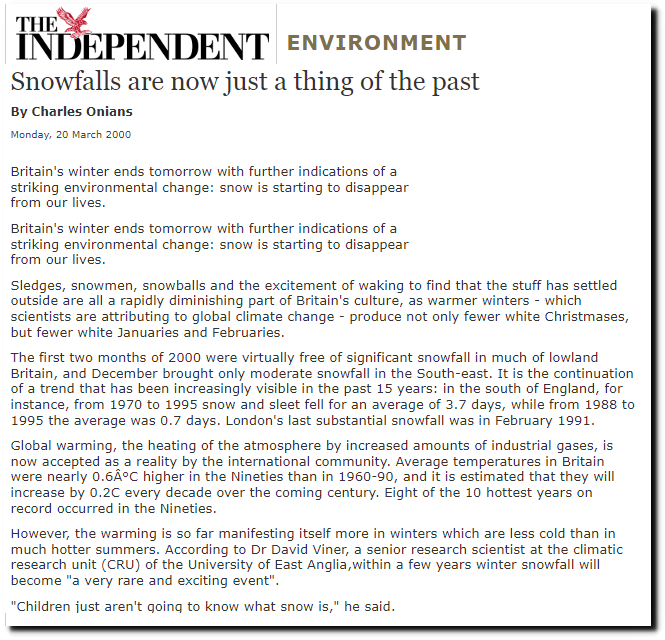The press is blaming snow in New York on global warming.
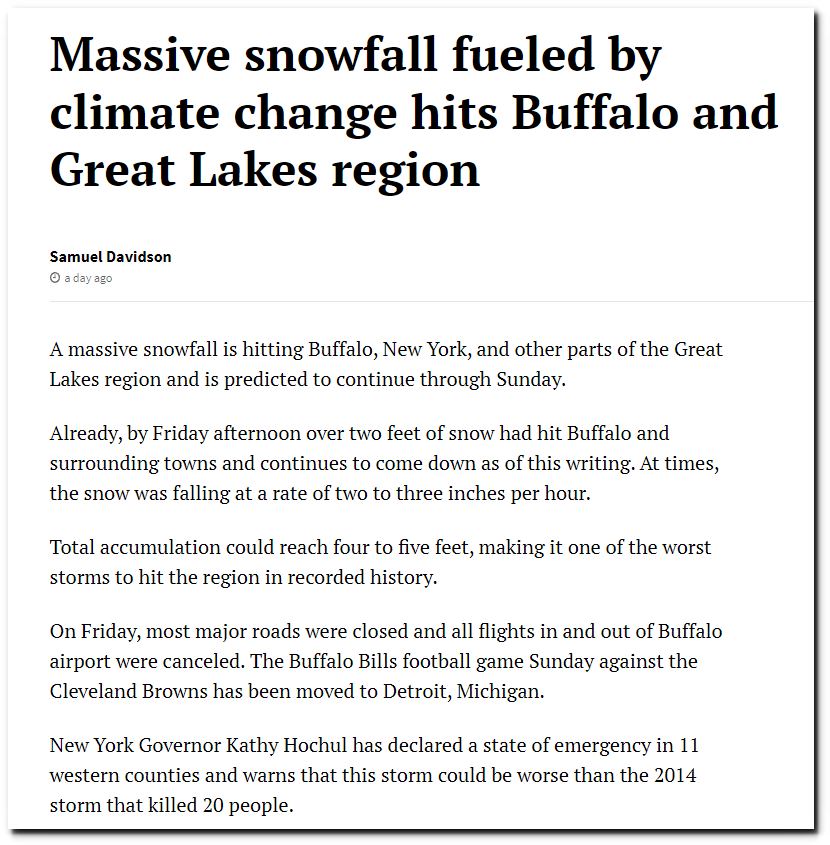
Cold winters in New York state get a lot more snow than warm winters.
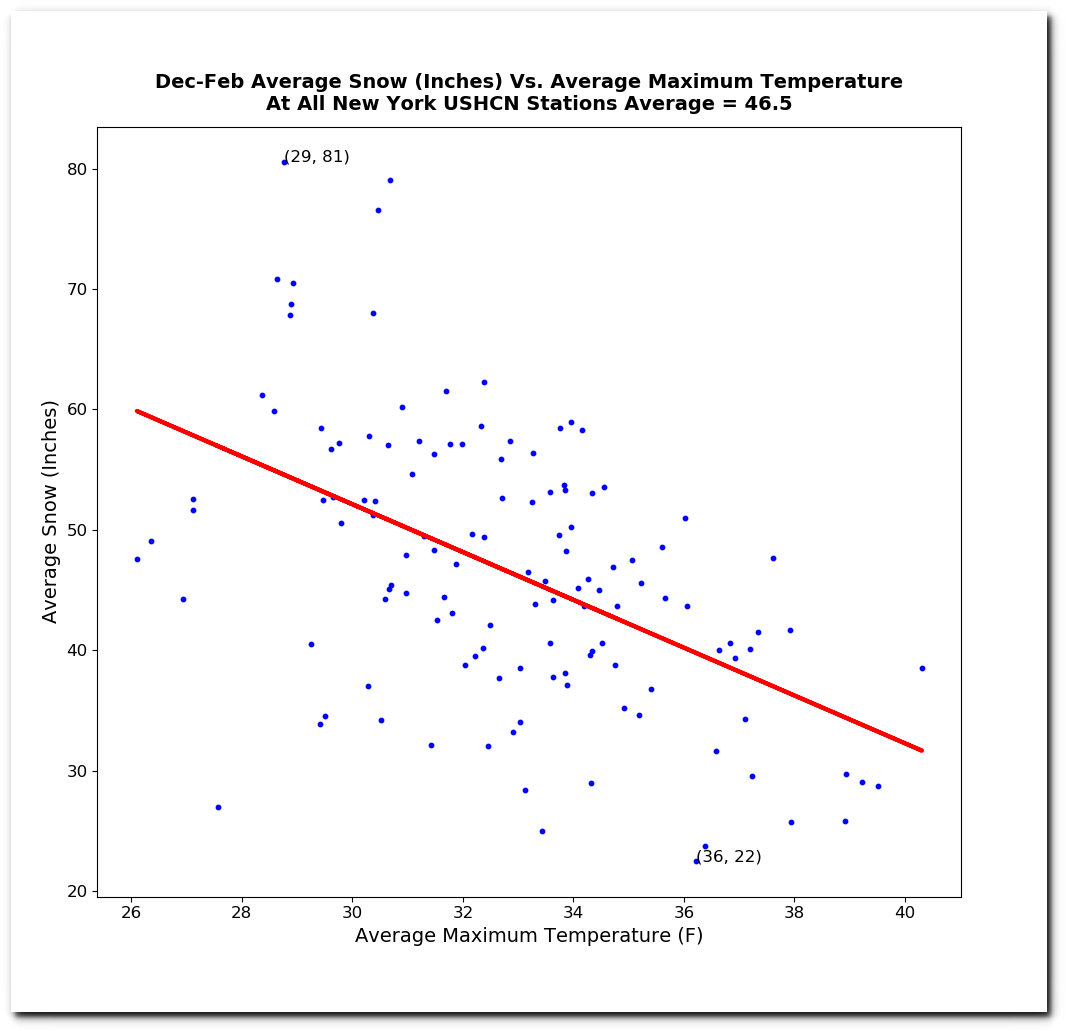
Buffalo’s worst snowstorm occurred during the record cold winter of 1977.
The National Geographic Archive | December 1977 | page 1
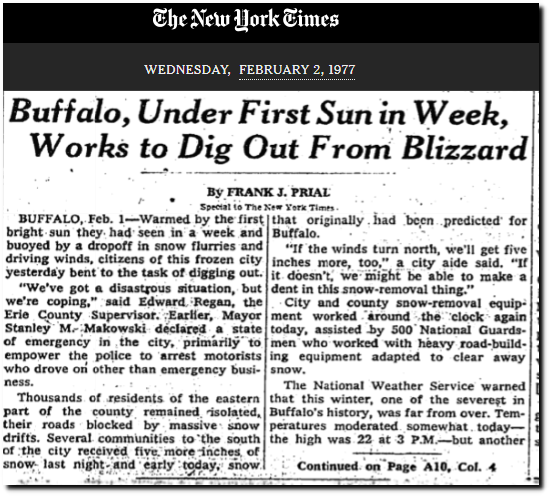
TimesMachine: February 2, 1977 – NYTimes.com
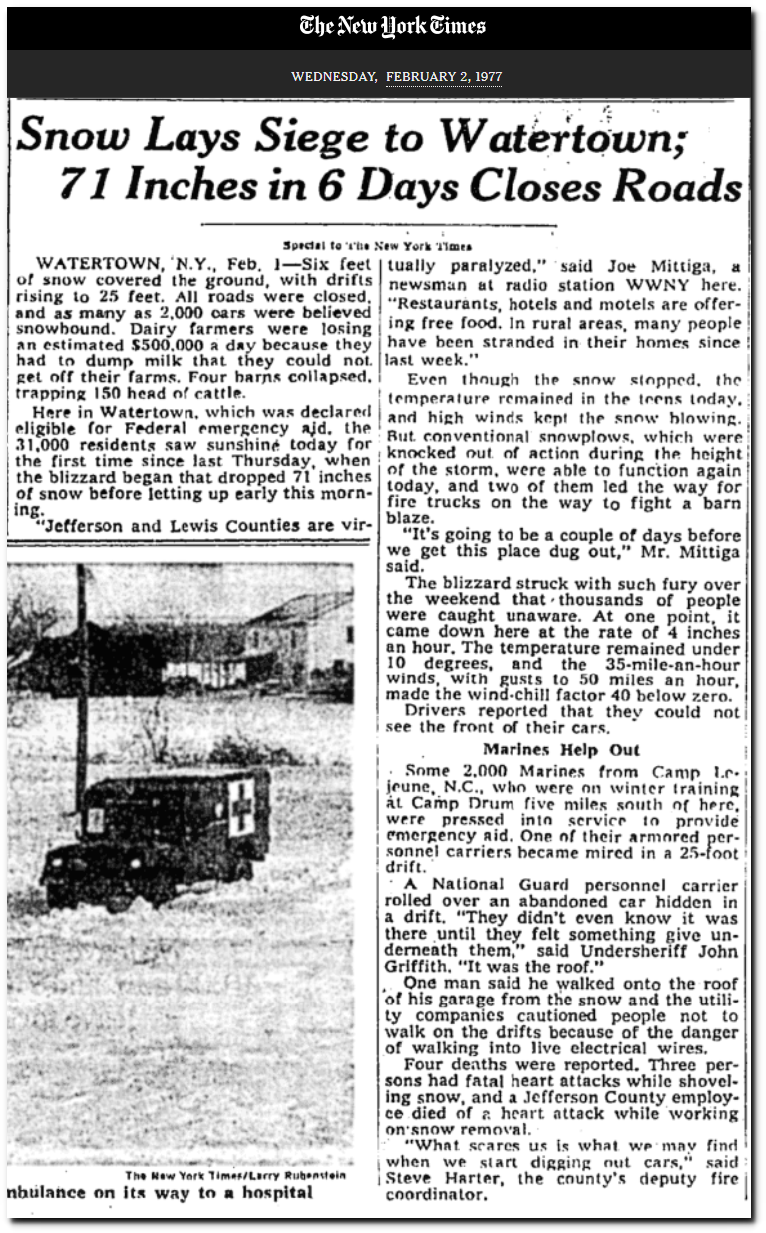
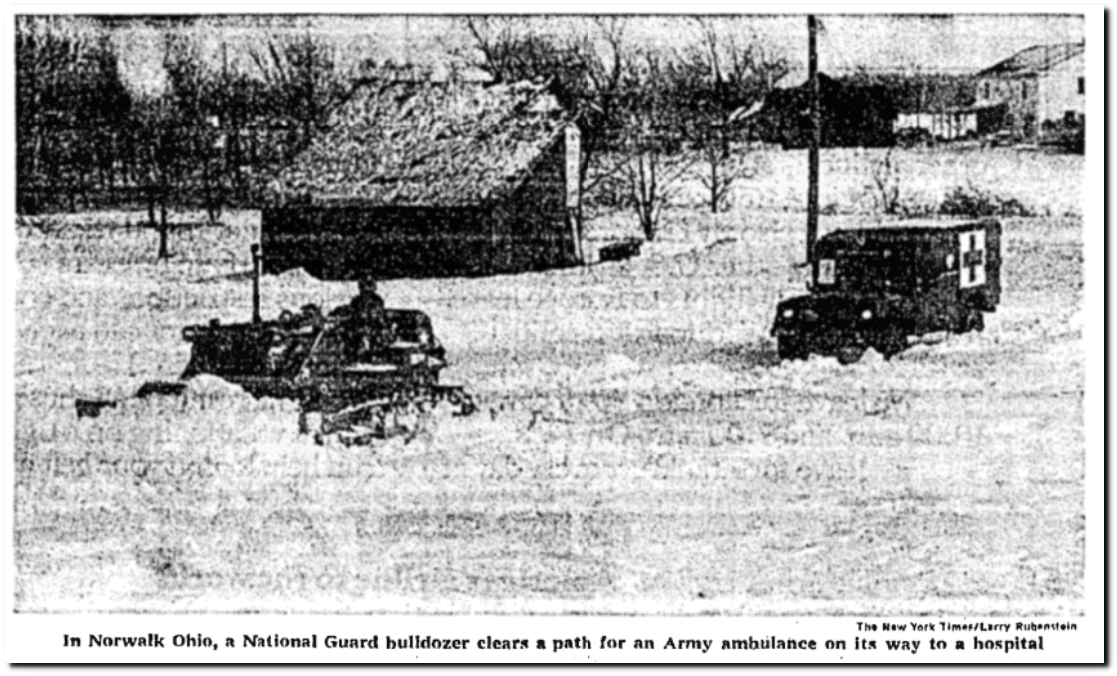
TimesMachine: February 2, 1977 – NYTimes.com
20 Jan 1977, Page 3 – Valley News
19 Jan 1977, Page 20 – The Town Talk at Newspapers.com
At the same time there was a severe drought in the west.
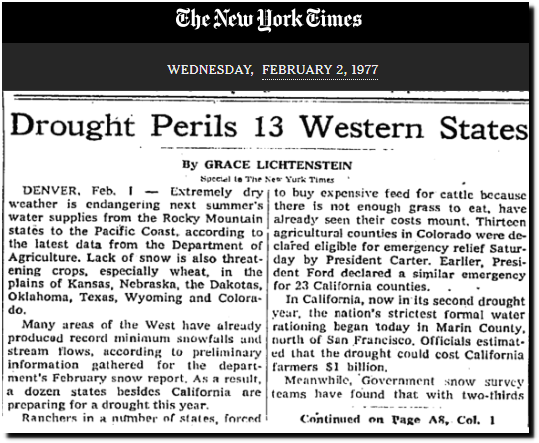
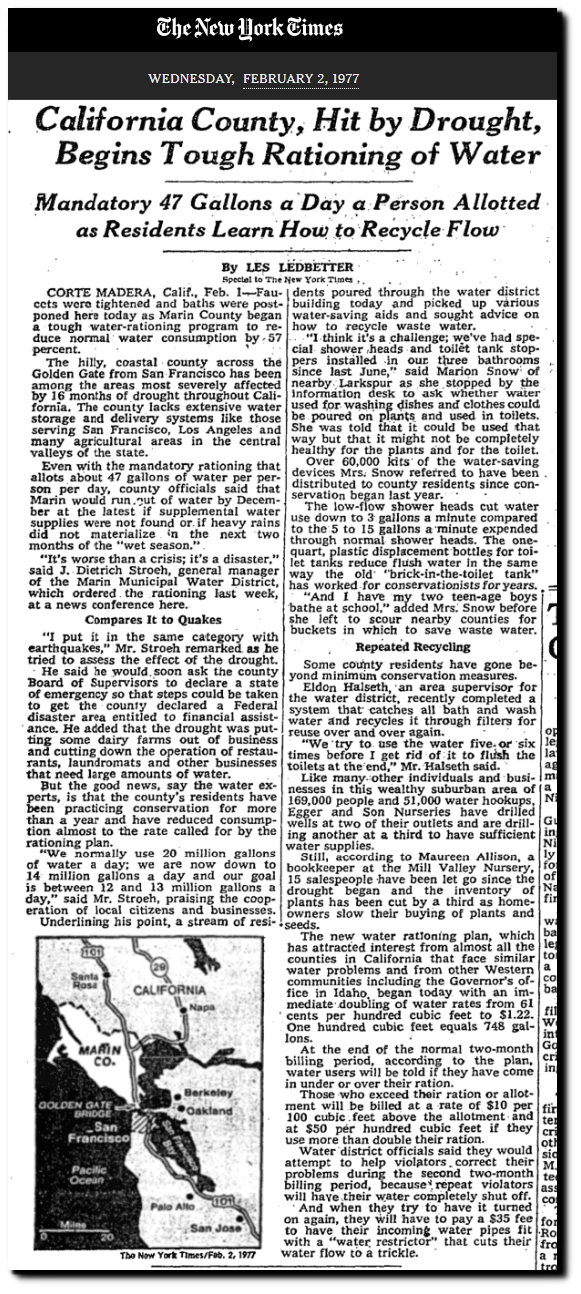
TimesMachine: February 2, 1977 – NYTimes.com
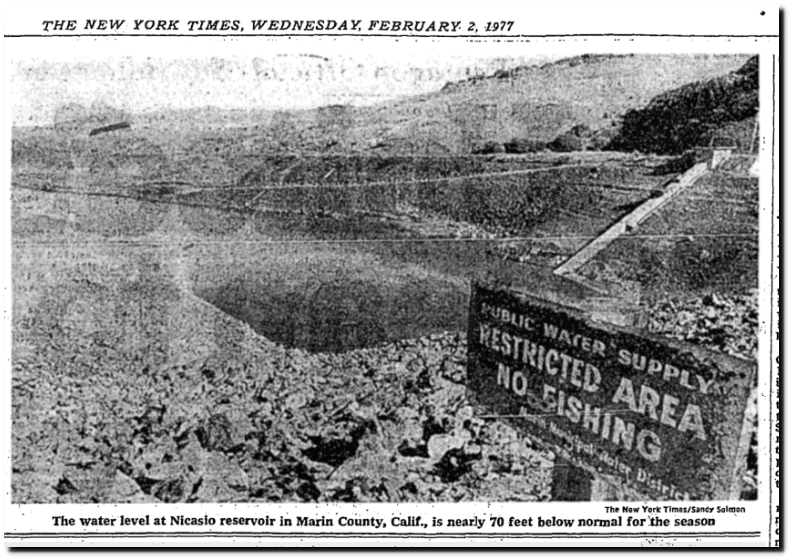
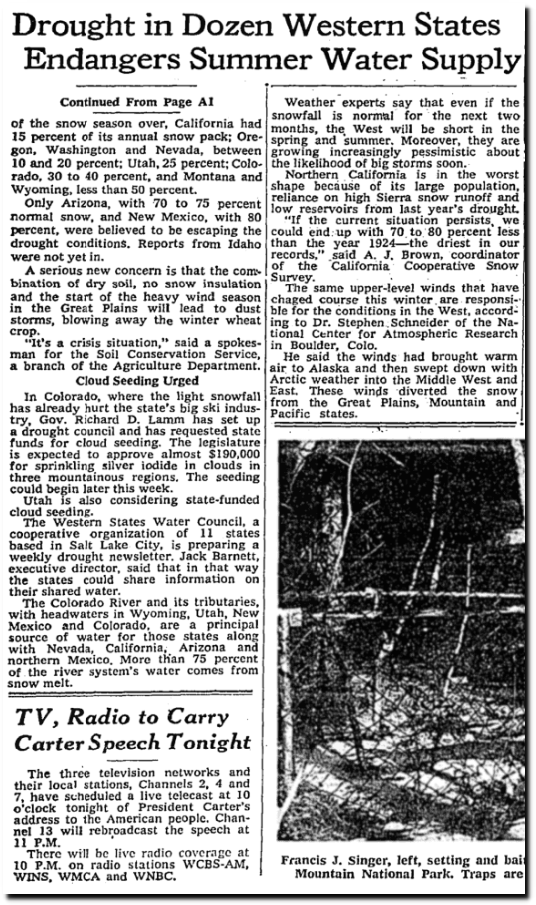
TimesMachine: February 2, 1977 – NYTimes.com
Ocala Star-Banner – Google News Archive Search
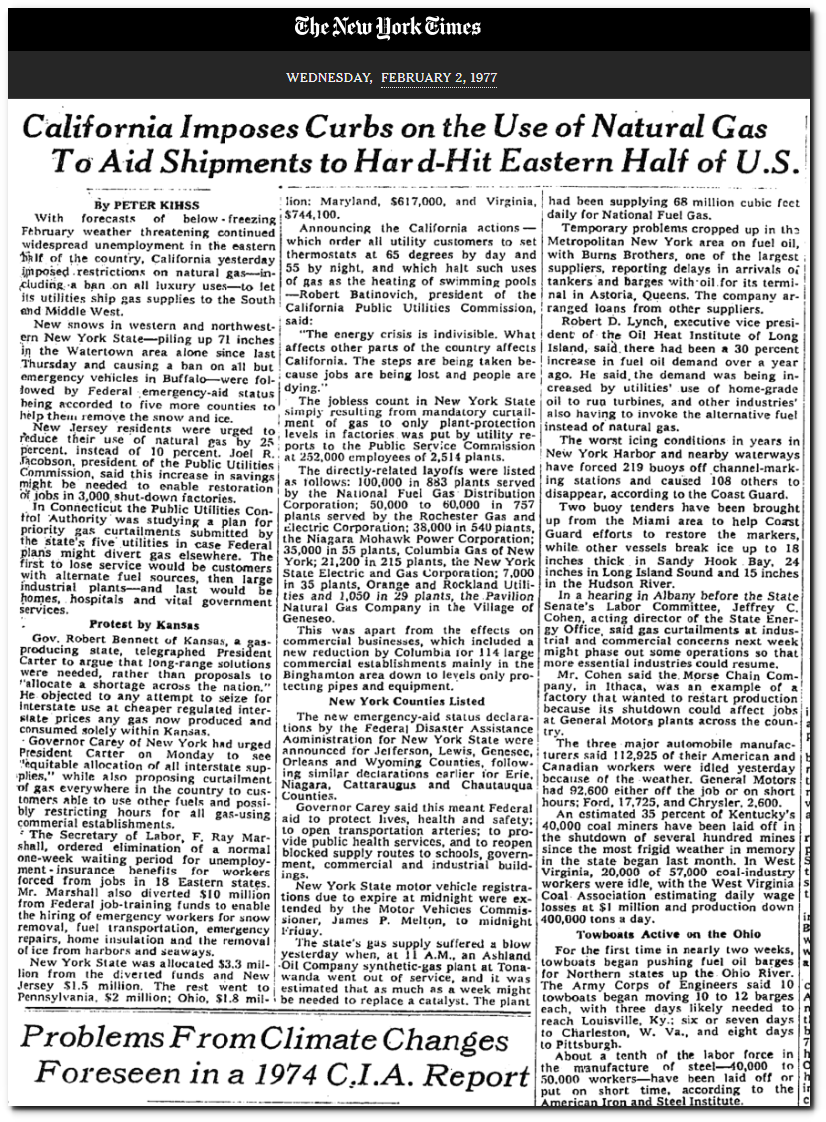
TimesMachine: February 2, 1977 – NYTimes.com
This was blamed on global cooling and expanding Arctic ice.
09 Jun 1977, Page 1 – The Daily Inter Lake at Newspapers.com
“Problems From Climate Changes Foreseen in a 1974 CIA Report
HOUSTON, Jan. 31—In August 1974, researchers at the Central Intelligence Agency completed a classified 36 -page working paper, entitled “A Study of Climatological Research us It Pertains to Intelligence Problems.” in it they reported, “Leaders in climatology und ‘economics are in agreement that’ « climatic change is taking place and that it has already caused major economic problems throughout the world.”
The study was declassified last May, after a relatively mild winter and at a time when most Americans believed, de- spite warning, that the energy ci casing, if not over, It generated attention.
Now, in the midst of major economic problems caused by a severe winter in the nation, studies on climate are receiving closer, if belated, scrutiny.
The C.LA. study, prepared by its Office of Research and Development, raised sobering issues well beyond the economic effects of a cold winter. It said that many nations, including this one, were locked into isolated and shortsighted perspectives that were out of step with new global realities of population growth, food and energy resources, and the economic and political disruptions caused by major, and even minor, weather disruptions,
Failure to Prepare
The study said that the United States had failed to prepare for assessing these implications, especially as they related to questions on climate.
“Though the issues are important’ study said, “the United States has a limited capability in climatic forecasting. The Government expends over $150 million annually on short-range weather forecasting, hut only a minimum of direct dollars on climatic forecasting. Only a few academic centers in the United States are engaged in training personnel in this field, which suggests we have a limited chance of solving the intelligence com- munity’s problem unless decisive action is taken.”
The report said that Intelligence analysts, as late as 1972, had “no methodologies to alert policy makers to adverse climatic change,” and “no tools to assess the economic and political impact of such a change.” Since then, world food and energy problems have intensified,
“With global climatic-induced agricultural failures in the early 1970’s, the stability of many governments has been seriously threatened,” the study said. “Many governments have gone to great lengths to hide their agricultural predicaments from other countries as well as from their awn people,”
Warnings Since Early ’70’s
Since the early 1970’s, some United States authorities on energy, food and climate have steadily warned of worsen- ing national and_ international predicaments in these interrelated areas, but their warnings have been disputed by others.
Students of climate, for example, contend that Americans are generally unaware of the ‘overall effects of droughts, freezes, floods and other unusual climate patterns around the world because these problems have been perceived and report- ed as isolated occurrences and because they have not directly affected Americans in the way the energy crisis has affected them,
Students of weather, on the other hand, view these occurrences as short-term aberrations and say it is too early to determine if they are part of a long- range global pattern.”
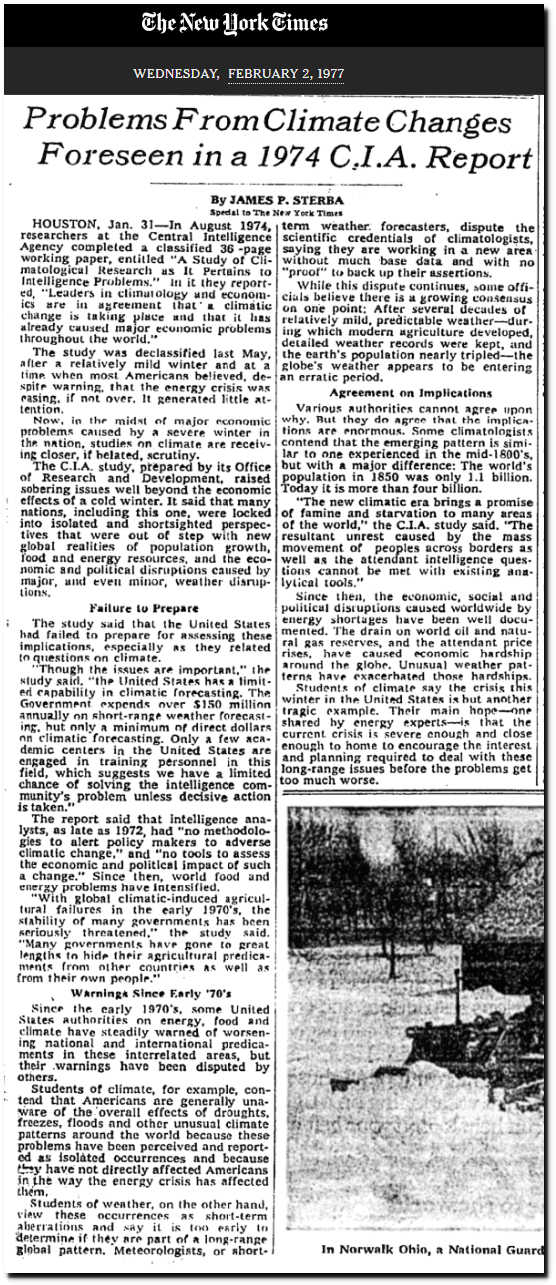
TimesMachine: February 2, 1977 – NYTimes.com
TimesMachine: March 8, 1977 – NYTimes.com
A few months later the state was flooded.
11 Feb 1978, Page 1 – The Sheboygan Press
Snowfalls are now just a thing of the past – Environment – The Independent

